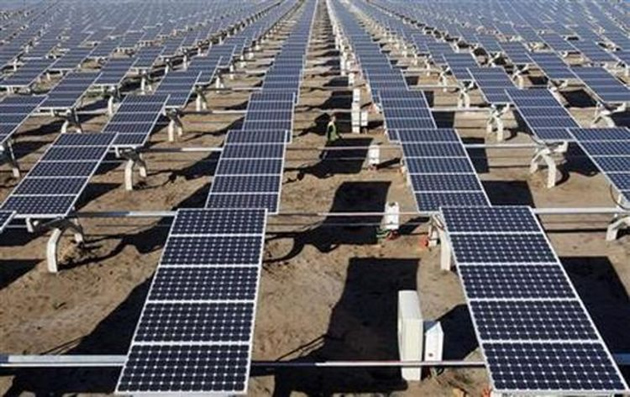Power crisis: SPB bungling worrisome

Lloyd Gumbo Mr Speaker Sir
Zimbabwe is facing a serious electricity crisis as the Kariba hydro-power station — the country’s flagship power plant — has reduced its generation capacity from about 700 megawatts to 475MW at a time the other main plant, Hwange Thermal Power Station, is frequently under repairs due to archaic and dilapidated equipment.
This is despite the fact that total generation capacity is half of total demand, something that justifies the current load shedding. To make it worse, Zesa cannot import power from neighbouring countries because they are also failing to satisfy their national demands, with Zambia facing the same predicament as us at Kariba North Power Station.
The fact that Government neglected this sector for too long is no longer a subject of debate, but the consolation is that there is now a clear-cut plan on increasing power generation through various projects. Mr Speaker Sir, on completion, Kariba South and Hwange Thermal Power Stations expansions are expected to add about 900MW to the national grid that will see the country cutting down on power deficit significantly.
These two are long-term projects that were expected to take not less than four years to complete.
Gladly, work has already started at Kariba South with the contractor indicating that they are on schedule to complete the project by early 2018.
Regrettably, not much has happened on the ground at the Hwange plant amid indications that the contractor is looking for funding for the project. It is now two years since Zim-Asset was launched with specific short-term and long-term plans on how to revive the economy with the energy sector being a key economic enabler identified by the blueprint.
Zim-Asset states that: “In order for the Zimbabwean economy to register growth in a manner that is both competitive and effective, there is need for the country to undertake work in critical areas such as the development of a robust, elaborate and resilient infrastructure.” The document adds that Government wants internal power generation increased by 300MW by December 2015.
We are just three months before December yet there are no indications that the country would increase the generation capacity by even 50MW by the end of the year. There is no need to look far beyond the State Procurement Board as to why this goal will not be achieved.
Solar energy is one such quick solution to the power crisis that Zimbabwe is facing and it seems Government was aware of this, hence the approval for solar plants construction in Gwanda, Insukamini and Munyati.
Initially, the tender was for Gwanda where 100 megawatts were anticipated before the Zimbabwe Power Company and the SPB changed the scope to 300MW by adding Munyati and Insukamini. But it is now two years since the State Procurement Board invited bids for solar construction in fulfilment of Government’s quest to find a quick solution to the power crisis bedevilling the country.
But for two years, the tenders have not yet been awarded with the SPB and the Zimbabwe Power Company at the centre of the storm counter-accusing each other of bungling the process. As a result, the 300MW remain a component on the wish-list with nothing tangible yet. How can the country be held to ransom by officials who appear bent on frustrating Government efforts to find a quick solution to a problem that has the capacity to ground the country?
Surely, who doesn’t know that Zimbabwe is in urgent need of increased power generation? If everyone is aware then why are Government-appointed officials taking their time to conclude the tendering process? As things stand, unless some authority is to be invoked, this tender will only be concluded earliest by November if not December.
In the event that the winning bidders are announced in December, they will then have to look for funding for the projects which could also take more time, even up to December next year. This means that the solar projects will likely be concluded by 2018 if not 2019. All this delay is because of problems that characterised the tendering process at the SPB where authorities seem to be from another planet since they see no need to urgently conclude this particular tender.
This solar tender delay is a clear reflection of the problems that Parastatals and State Enterprises are going through in their quest to improve their services.
For instance, when NetOne officials appeared before Parliamentary Portfolio Committees they attributed their failure to compete with private operators to bureaucracy in buying modern technology to upgrade their system.
It is therefore gratifying that President Mugabe acknowledged problems bedevilling procurement procedures. “In view of this, a new Procurement Bill will be drafted and tabled in Parliament before the end of 2015. “The Bill will incorporate COMESA procurement guidelines which emphasise devolution of power to award tenders to procuring entities.
“The procuring entities will comprise Government Ministries, parastatals, State enterprises and local authorities. “The State Procurement Board will be transformed into a new non-executive procurement authority tasked with setting standards and guidelines as monitoring compliance by procurement entities,” said President Mugabe.
This is indeed an ideal arrangement that will see Government institutions being able to expedite the procurement process instead of spending months going through bureaucratic processes that have not done enough to serve their purpose amid indications of malpractices by those in charge of procurement.
To make it worse, those who are in charge of procurement at the SPB are not experts in all areas that they have to adjudicate on. For instance, there are specific areas that require experts to determine who the right bidder is because at the moment, the SPB can turn down recommendations from procuring entities.
Mr Speaker Sir, the fact that procuring entities are going to be in charge of their procurement addresses the problem that has for far too long seen mediocre companies being awarded tenders and fail to deliver. It is of utmost importance that Government expedites the process of restructuring procurement if it is to meet its set objectives timeously.
There is no need for further delay given the complaints across Government institutions on how procuring through SPB has been a nightmare. President Mugabe added that the SPB would act as advisor to the Government on public procurement policy. It is therefore important that the right mechanisms are put in place to ensure that procuring entities do not abuse their positions by engaging in corrupt activities by awarding tenders to undeserving companies for kickbacks.
This is one animal that must be guarded against jealously because failure to do so will see the problems that bedevilled procurement under SPB resurfacing.










Comments